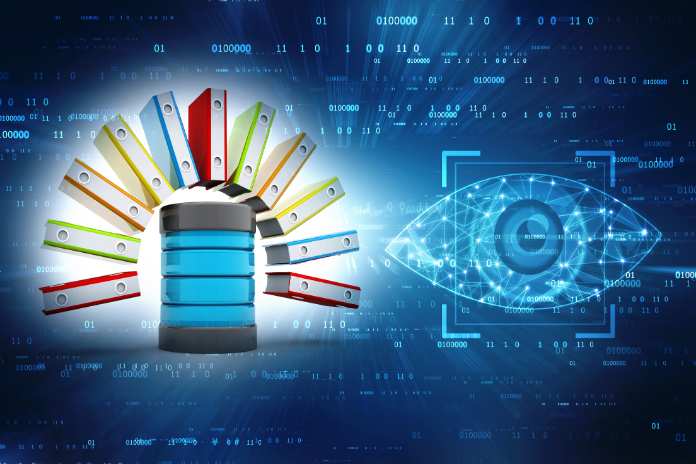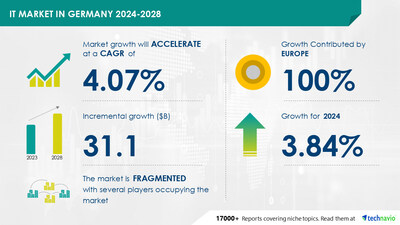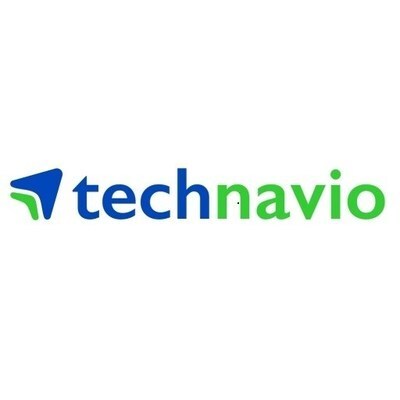NEW YORK, Jan. 23, 2025 /PRNewswire/ — Report with the AI impact on market trends – The IT market in Germany size is estimated to grow by USD 31.1 billion from 2024-2028, according to Technavio. The market is estimated to grow at a CAGR of almost 4.07% during the forecast period. Increased adoption of it solutions among german smes is driving market growth, with a trend towards increasing adoption of big data solutions by enterprises. However, shortage of skilled it professionals poses a challenge. Key market players include badenIT GmbH, Broadcom Inc., Capgemini Service SAS, Cisco Systems Inc., Dell Technologies Inc., Fortinet Inc., Fujitsu Ltd., Hewlett Packard Enterprise Co., Hitachi Ltd., HUNARI Arik and Hunneck GbR, Infosys Ltd., International Business Machines Corp., Juniper Networks Inc., Lenovo Group Ltd., nextevolution GmbH, Oracle Corp., Siemens AG, Tata Consultancy Services Ltd., Toshiba Corp., and VACE Systemtechnik GmbH.
Key insights into market evolution with AI-powered analysis. Explore trends, segmentation, and growth drivers- View Free Sample PDF
|
IT Market In Germany Scope |
|
|
Report Coverage |
Details |
|
Base year |
2023 |
|
Historic period |
2017 – 2021 |
|
Forecast period |
2024-2028 |
|
Growth momentum & CAGR |
Accelerate at a CAGR of 4.07% |
|
Market growth 2024-2028 |
USD 31.1 billion |
|
Market structure |
Fragmented |
|
YoY growth 2022-2023 (%) |
3.84 |
|
Regional analysis |
Germany |
|
Performing market contribution |
Europe at 100% |
|
Key countries |
Germany and Europe |
|
Key companies profiled |
badenIT GmbH, Broadcom Inc., Capgemini Service SAS, Cisco Systems Inc., Dell Technologies Inc., Fortinet Inc., Fujitsu Ltd., Hewlett Packard Enterprise Co., Hitachi Ltd., HUNARI Arik and Hunneck GbR, Infosys Ltd., International Business Machines Corp., Juniper Networks Inc., Lenovo Group Ltd., nextevolution GmbH, Oracle Corp., Siemens AG, Tata Consultancy Services Ltd., Toshiba Corp., and VACE Systemtechnik GmbH |
In today’s business landscape, the utilization of accurate and timely business data is essential for German enterprises to reach their objectives and mitigate risks. While the Internet, retail, and advertising industries were early adopters of Big Data solutions in Germany, their application has since expanded to various end-user sectors, including manufacturing, healthcare, utilities, and transportation. Insights derived from Big Data solutions play a crucial role in enabling German enterprises to introduce new products and services to the market. Export-oriented German firms are expanding their operations overseas by optimizing production, logistics, and sales processes through Big Data tools. Some applications of Big Data solutions in Germany include: Mercedes-Benz, a division of Daimler, employs SAP HANA in its engine testing department to process and visualize vast amounts of data in seconds. This allows for the detection of minor deviations and immediate corrective actions, enhancing the efficiency of the test system. Beiersdorf, a consumer goods manufacturer, has developed a product demand management platform that utilizes SAP HANA for data aggregation. This platform offers analytics on product performance and identifies the primary causes of market share fluctuations for their brands versus competitors, empowering informed decision-making. The German government is promoting a Big Data ecosystem by investing in research projects, such as the smart data innovation lab, the German research center for AI, and the Berlin Big Data Center. This investment is expected to boost the adoption of Big Data solutions and contribute to market growth during the forecast period.
The IT industry is thriving with trends such as Integrated Systems and Digital Factories leading the way. The National AI Strategy is a priority for Artificial Intelligence market growth, with software AI and automation transforming various sectors like hospitals, banks, shops, prisons, hotels, airports, and train stations. IT Security remains crucial as IT employees face increasing Security threats. Government support is essential for the growth of IT companies in the ICT market, including IT-Services, IT-Hardware, and Software subsector. Digital Agenda priorities include Cybersecurity, E-privacy Regulation, and the Internet of Things. Big Data and Health IT are driving Data Analytics, while Cloud computing services are essential for Internet access and penetration. ERP and Data centers are key IT infrastructure components. Skilled IT workforce is in high demand, and IT consultation services offer valuable expertise. IT hardware and hardware systems continue to innovate, shaping the future of the industry.
Request Sample of our comprehensive report now to stay ahead in the AI-driven market evolution!
• German enterprises are experiencing a significant challenge in recruiting and retaining skilled IT professionals due to a shortage of qualified candidates. The recruitment process is predominantly digital, with job vacancies being published on company websites and career portals. However, the lack of professionals with the necessary qualifications, experience, and skillsets in areas such as cloud, AI, Big Data, and IoT has led to over 1.3 million IT-related vacancies remaining unfilled for nearly five months in 2020. This shortage can negatively impact the digital transformation initiatives of German enterprises, potentially hindering their ability to meet client demands and adversely affecting the IT market during the forecast period. The German government is addressing this issue by simplifying immigration laws to attract foreign professionals to fill these vacancies.
• The IT industry faces several challenges in today’s business landscape. Integrated systems require seamless compatibility among various hardware and software components. The Digital Factory revolution demands advanced automation and AI software in manufacturing. National AI Strategies call for investment in AI technologies and skilled IT workforce. IT Security remains a top concern with increasing cyber threats. The AI market grows, bringing opportunities for software AI and data analytics. Hospitals, banks, shops, prisons, hotels, airports, and train stations require IT solutions for efficient operations. Government support is crucial for IT companies in the ICT market. Computers and internet access are essential, with internet penetration driving demand for Cloud computing services. The IT industry must address the challenges of database management, libraries, and IT employees’ training. Security threats necessitate IT consultation services and IT hardware upgrades. ERP systems and data centers require robust cybersecurity and e-privacy regulations. The Internet of Things and Big Data bring new opportunities in Health IT and Cloud computing. In conclusion, the IT industry must adapt to these challenges to remain competitive. Investments in AI, automation, cybersecurity, and skilled workforce are key to success. The Digital Agenda and E-privacy Regulation will shape the future of IT-Services, IT-Hardware, and the Software subsector.
Discover how AI is revolutionizing market trends- Get your access now!
This IT market in Germany report extensively covers market segmentation by
- End-user
- 1.1 Manufacturing
- 1.2 Government
- 1.3 BFSI
- 1.4 ICT
- 1.5 Others
- Application
- 2.1 Large enterprise
- 2.2 SMEs
- Geography
- 3.1 Europe
1.1 Manufacturing- The German manufacturing sector, home to global leaders in automotive and engineering, is undergoing a digital transformation. IT is playing a pivotal role in converting traditional factories into smart digital ones, with automated procurement, manufacturing, and distribution processes. Industry 4.0 technologies like Big Data, analytics, AI, IoT, and cybersecurity are being deployed to optimize production and enhance flexibility and quality. In 2021, Industry 5.0 emerged, focusing on human-machine collaboration. Manufacturers are utilizing Big Data and analytics for data management from production equipment, enterprise systems, and customer management. Cloud-based software is being adopted for enterprise applications and Big Data analytics, reducing data processing time and enabling a data-driven production environment. Autonomous robots are being integrated for utility purposes, improving cost efficiency. Manufacturing intelligence allows for close speculation on mechanical and procedural challenges, driving IT market growth in Germany.
Download a Sample of our comprehensive report today to discover how AI-driven innovations are reshaping competitive dynamics
The ICT market is a dynamic and ever-evolving industry, encompassing various subsectors including IT-Services, IT-Hardware, and the Software sector. The Digital Agenda drives innovation in areas like Cybersecurity, E-privacy Regulation, Internet of Things, and Artificial Intelligence (AI). Automation and Data Analytics are transforming businesses across industries, from libraries and hospitals to banks and shops. The IT industry relies on a skilled workforce to address Security threats and provide IT consultation services. Cloud computing services and the Internet are essential infrastructure, while IT employees continue to be in high demand. Database management remains a critical function for organizations, and IT hardware continues to advance with new technologies.
The ICT market is a dynamic and ever-evolving industry, encompassing various subsectors including IT-Services, IT-Hardware, and the Software sector. The Digital Agenda is a key driver, pushing for advancements in Cybersecurity, E-privacy Regulation, Internet of Things, Big Data, Health IT, Cloud computing, ERP, Data centers, Integrated systems, and Digital factory. The Artificial Intelligence market is a significant growth area, with software AI, automation, and Data Analytics leading the charge. The IT industry serves various sectors such as hospitals, banks, shops, prisons, hotels, airports, and train stations, with government support playing a crucial role. The IT industry requires a skilled workforce to address Security threats and provide IT consultation services. IT hardware, including computers and hardware systems, are essential components of the industry, enabling internet access and internet penetration for businesses and individuals alike. Cloud computing services and the Internet are fundamental to the industry’s success, with IT employees working to ensure the security and efficiency of these systems.
1 Executive Summary
2 Market Landscape
3 Market Sizing
4 Historic Market Size
5 Five Forces Analysis
6 Market Segmentation
- End-user
- Manufacturing
- Government
- BFSI
- ICT
- Others
- Application
- Large Enterprise
- SMEs
- Geography
- Europe
7 Customer Landscape
8 Geographic Landscape
9 Drivers, Challenges, and Trends
10 Company Landscape
11 Company Analysis
12 Appendix
Technavio is a leading global technology research and advisory company. Their research and analysis focuses on emerging market trends and provides actionable insights to help businesses identify market opportunities and develop effective strategies to optimize their market positions.
With over 500 specialized analysts, Technavio’s report library consists of more than 17,000 reports and counting, covering 800 technologies, spanning across 50 countries. Their client base consists of enterprises of all sizes, including more than 100 Fortune 500 companies. This growing client base relies on Technavio’s comprehensive coverage, extensive research, and actionable market insights to identify opportunities in existing and potential markets and assess their competitive positions within changing market scenarios.
Technavio Research
Jesse Maida
Media & Marketing Executive
US: +1 844 364 1100
UK: +44 203 893 3200
Email: [email protected]
Website: www.technavio.com/
![]() View original content to download multimedia:https://www.prnewswire.com/news-releases/it-market-in-germany-to-grow-by-usd-31-1-billion-2024-2028-driven-by-it-adoption-among-smes-report-highlights-how-ai-is-driving-market-transformation—technavio-302357258.html
View original content to download multimedia:https://www.prnewswire.com/news-releases/it-market-in-germany-to-grow-by-usd-31-1-billion-2024-2028-driven-by-it-adoption-among-smes-report-highlights-how-ai-is-driving-market-transformation—technavio-302357258.html
SOURCE Technavio

Featured Image: Megapixl @ Blackboard373

















